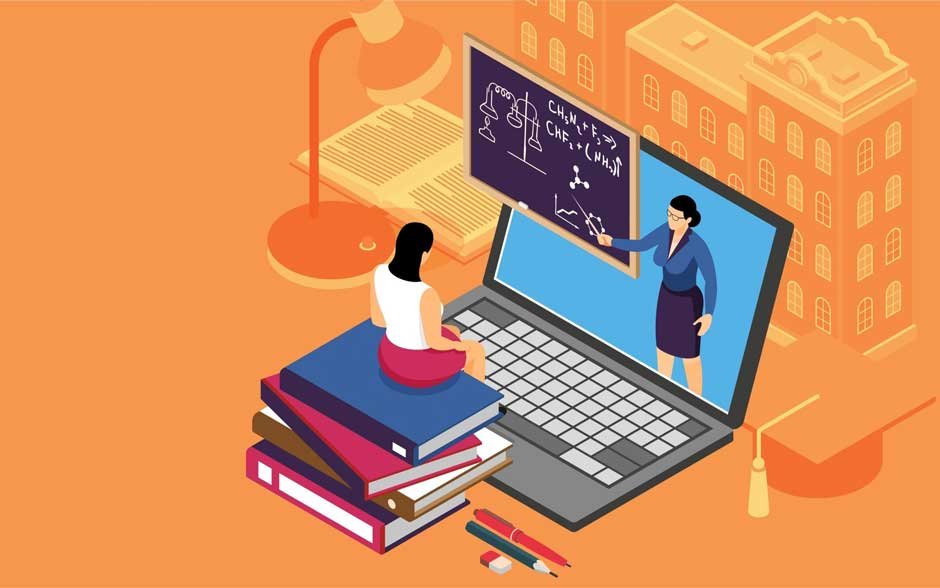Virtual learning has transformed education in ways we couldn’t have imagined a few decades ago. One of the biggest advantages is the added flexibility it offers, allowing students to learn at their own pace and even asynchronously. This is something traditional in-person classes simply can’t provide. The freedom that comes with online learning can make a huge difference, especially for those juggling multiple responsibilities. Whether you’re attending an online community college or pursuing a full-time degree online, this flexibility can be a game-changer for many students. Let’s dive into how the flexibility of online classes positively impacts students in higher education.
Learning at Your Own Pace
One of the most significant benefits of virtual learning is the ability to learn at your own pace. In a traditional classroom, the teacher sets the pace, and you have to keep up with the class regardless of whether you’re ready to move on. Online learning changes that dynamic. If you need more time to grasp a concept, you can pause, review the material, and only move forward when you’re confident. On the flip side, if you find a topic easy, you can breeze through it without waiting for others to catch up. This personalized approach to learning can lead to a deeper understanding of the material and a more satisfying educational experience.
Balancing Education with Life’s Responsibilities
For many students, balancing school with work, family, and other commitments is a constant juggling act. Virtual learning offers the flexibility to fit education into your life rather than the other way around. You can schedule your study time around your job, childcare, or other responsibilities. This is especially useful for adult learners or those who have returned to school after some time in the workforce. The ability to take classes and complete assignments on your own schedule means you don’t have to put your life on hold to pursue your education. This balance can reduce stress and make the process of earning a degree more manageable.
Taking Advantage of Asynchronous Learning
Asynchronous learning is one of the unique aspects of virtual education. Unlike live classes, where you need to be present at a specific time, asynchronous courses allow you to access materials, lectures, and assignments whenever it’s convenient for you. This means you can study at 2 a.m. if you’re a night owl or early in the morning before starting your day. The flexibility of asynchronous learning is especially beneficial for students in different time zones or those with unpredictable schedules. It provides the freedom to learn in a way that suits your lifestyle, which can lead to better retention and success in your studies.
Access to a Wider Range of Courses
Another advantage of virtual learning is the access it provides to a broader range of courses and programs. Traditional schools are limited by their physical location and resources, but online learning opens up opportunities to take courses from institutions all over the world. This means you can find programs that are specifically tailored to your interests and career goals, even if they’re not offered locally. For example, if you’re interested in a niche subject or a specific online community college program, you can enroll without worrying about geographic barriers. This access to diverse courses can enhance your learning experience and better prepare you for your desired career path.
Creating a Custom Learning Environment
In a virtual learning setup, you have the freedom to create a learning environment that works best for you. No more uncomfortable desks or distracting classrooms—you can study in your favorite coffee shop, your cozy bedroom, or even outside in a park. Having control over your study environment means you can set up a space that minimizes distractions and maximizes your comfort and focus. This can lead to a more effective learning experience, as you’re able to concentrate better and retain information more easily. Plus, being able to study in a setting that makes you feel at ease can reduce the stress often associated with traditional classroom learning.
Developing Self-Discipline and Time Management Skills
While the flexibility of virtual learning is a significant benefit, it also requires a great deal of self-discipline and time management. Without the structure of a traditional classroom, it’s up to you to stay on top of your assignments and manage your study schedule. While this might sound challenging, it’s actually a valuable skill that can benefit you in all areas of life. By learning how to prioritize tasks, set deadlines, and manage your time effectively, you’re not just succeeding in your studies—you’re also developing skills that are highly valued in the workplace. The discipline you gain from online learning can set you up for success in your future career.
Connecting with a Global Learning Community
One often overlooked benefit of virtual learning is the opportunity to connect with a diverse, global community of learners. In a traditional classroom, your interactions are limited to the people in your immediate vicinity. However, online courses can include students from all over the world, bringing a variety of perspectives and experiences to the table. Engaging with this diverse community can broaden your horizons, enhance your understanding of different cultures, and provide valuable networking opportunities. This global interaction can enrich your learning experience and help you build connections that go beyond the virtual classroom.
Conclusion
Leveraging the flexibility of virtual learning can be a transformative experience. It allows you to learn at your own pace, balance education with other responsibilities, and access a broader range of courses. The ability to create a personalized learning environment and develop self-discipline and time management skills further enhances the benefits of online education. Whether you’re pursuing a degree through an online community college or exploring asynchronous courses from various institutions, virtual learning offers a unique and adaptable approach to higher education. By taking full advantage of this flexibility, you can create an educational experience that fits your life and helps you achieve your academic and career goals.

